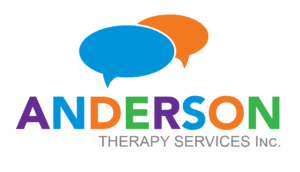What is a Psychoeducational Assessment?
A psychoeducational assessment is a type of testing that looks at how a person learns and thinks; what are their strengths and weaknesses, and how do they learn best? What can be done to ensure they achieve their potential?
A variety of techniques and tests are used to help identify learning strengths and weaknesses. This includes information about academic history, interviews with school staff, conversation with the child, as well as using standardized testing to evaluate specific skill levels in domains such as visual abilities, processing speed, listening comprehension, verbal expression, memory, and problem solving. We work with the child individually, but sometimes observe them with their peers if they are experiencing social or behavioural challenges. When they are with us on their own, they are often more comfortable talking about their feelings about school, what has been harder for them, and if they’ve experienced any mental health issues.
Once all the information has been gathered, the psychologist will prepare a report to compile the findings. This report is provided to the principal and Special Education Resource Teacher, who provide a copy to families. Information from the report is used to help plan for the child’s success at school. Each assessments takes about 5-7 hours, between seeing the child, reviewing data, scoring, and putting together the report.
Sometimes the assessment leads to a diagnosis or identification of a special need, such as a specific learning disorder (learning disability), attention deficit/hyperactivity disorder, or developmental delay. But, not all children who receive an assessment will be identified as special needs. Most of the time, we simply found out how a child learns best, so that teachers can support them in class. It is also helpful to know someone’s learning style so they can plan for the future; what courses to take in college or university, what careers to think about, and what activities they might enjoy. Another benefit of a psychoeducational assessment is to be able to set realistic expectations about what is possible for a child to achieve in an academic or work setting.
We provide recommendations that build on the child’s strengths and support weaker areas. This can include extra time to complete work, a different space for tests and exams, use of a laptop or computer to help with reading and writing, and access to special eduction support. Recommendations are very individualized. For example, if a child has weaker memory abilities, this really affects their reading comprehension, math problem solving, and how quickly they can work. We will advise teachers not to use timed tests with them where they are expected to remember long math formulas, and suggest the child use a calculator. For reading, a laptop or iPad that reads aloud will allow the child to follow along, take notes, and better understand what they read. If needed, recommendations may include referrals to other services, such as to speech-language pathology (SLP) for communication concerns or to occupational therapy (OT) for fine motor difficulties.
How do I know if a child needs a Psychoeducational Assessment?
Parents/caregivers and school staff consider this assessment if they have concerns about a child’s academic progress, or if a child struggles even after they’ve been given some help at school. Here are some common reasons why children are referred:
- Low marks on report cards
- Getting in trouble
- Difficulty focusing/paying attention during class
- Difficulty completing schoolwork on-time
- Feeling overwhelmed or anxious
- Not achieving full potential
- Loss of interest in school
- Bullying or rejection at school
Sometimes people avoid participating in a psychoeducational assessment out of fear of the outcome or fear associated with the process; however, the sooner a child’s needs are assessed and recognized, the sooner accommodations can be made at school or work to maximize learning style. The entire process is confidential.
We would be pleased to discuss any questions or concerns about the psychoeducational services we provide.






